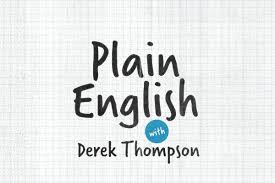
Hello! Here is a page where I will post podcast episodes (at least every week) that taught me something new or made me see things differently. Why should you care?
My taste includes progressive politics, trends in the business of journalism, predicted shifts in geopolitics, philosophy, and anything I choose as a free, educated woman in the United States – a democratic republic, if we can keep it, so said Ben Franklin after his final signing of the Constitution.
Get my latest pick delivered straight to your inbox:
Podcast list from newest to oldest:
No. 4 — May, 26. Manhattan.
Decoder Ring: Andrew Wyeth’s Secret Nudes
Was Andrew Wyeth a conservative Republican? That is the prevailing consensus in the contemporary, high-society art world. But was Wyeth — the quintessential American artist from rural Pennsylvania — more progressive than we think?
In the early 1980s, Art & Antiques, the nascent culture magazine, was not very hot. But the publication, along with the art world as a whole, blew up under the Reagan economics era as money started flowing in from private investment. Executive editor Jeff Schaire scooped a major story in Chester County when he had the chance to meet Wyeth and his wife, Betsy, in their backcountry home (and ask about rumored infidelity involving their housekeeper).
Betsy kept her husband’s feet and artistic ego rooted in reality. Like the common assessment of what a “politician’s wife” should be, an “artist’s wife” is a common trope among the historians and art critics of the Wyeth era. (Sexist but true.)
She dimmed her own aspirations and personal potential to support Wyeth and let his talent shine. But she had no problem with this because women of the era did not have strong female figures to emulate (well, especially in rural Pennsylvania).
In this episode, hear about their nuanced relationship and step into the eccentric life of being an artist.
If you want more, here is a fantastic obituary written for Wyeth in Arts and Antiques complete with his whole story.
No. 3 — May, 25. Manhattan.
Not All Votes Are Created Equal — Reveal, Mother Jones Podcast
The first time women had the right to vote was in 1919. Overall voting access is better today than when our nation was founded. But not all votes are counted equally. For instance, Wyoming is one of our least diverse states and California is one of our most. And there are far more people in California than in Wyoming. But they both have the same number of electoral votes: two. What happens as a result? Minority rule.
How did this happen in the first place? It all dates back to protecting white, land-owning men. Mother Jones correspondent and expert on this subject, Ari Berman, speaks with Reveal host Al Letson about how the Founding Fathers set up a constrained system of society.
Something new I learned about Trump: he mirrored his campaign on Pat Buchanan, a conservative Christian Republican who made his name in the ‘90s as a presidential candidate opposed to civil rights. (He was a speechwriter for Richard Nixon.) Like Buchanan, Trump is worried that white people are going to be the minority and that the Republican Party will go extinct because it is so closely tied to white America.
No. 2 — May, 24. Manhattan.
What America’s Bold New Economic Experiment is Missing — Plain English with Derek Thompson

The Atlantic is the talk of the town. As the business of journalism faces an existential threat from billionaires, authoritarianism, and a staggering decline in audience, the left-leaning literary magazine founded by New England transcendentalist Ralph Waldo Emerson has done quite well under its fresh CEO.
For this week’s episode, I chose one by senior staff writer at The Atlantic, Derek Thompson. In this selection from his podcast “Plain English with Derek Thompson,” he converses with New York Times writer David Leonhardt about his new book “Ours Was the Shining Future: The Story of the American Dream”.
Leonhardt warns that Democratic politicians are not listening to a large portion of working-class Americans. He says we cannot write them off as ignorant. As a centrist solution, he suggests prioritizing the immigrants we allow into the country, looking at sectors of American jobs in need, and then filling those slots with qualified people. (Yikes.)
Thompson respectfully disagreed. And the reason this is my episode of the week is because the two shared opposing opinions and listened to one another with care. We need more of this in the news today. Thank you for setting an example, Mr. Thompson.
No. 1 — May, 23. Manhattan.
New order: The global financial order is under threat – The Economist

Here is my pick this week: “New order: The global financial order is under threat,” the latest episode of The Economist podcast series Money Talks.
Is it fair that we impose our will on others through subsidies and tariffs? The U.S. has done this for years, and numbers show they do more harm than good. On top of that, harsh tariffs on authoritarian governments—like Russia and China—can have a disastrous impact on the working-class people in those countries.
Restricting access to free trade allows authoritarian dictators to wield even more control over their people. We need a new tactic. Do you have any thoughts?
Send me an email: Aem2317@columbia.edu
I will update this weekly through my emailed newsletter, plug in your email below to stay in the loop:
Leave a comment